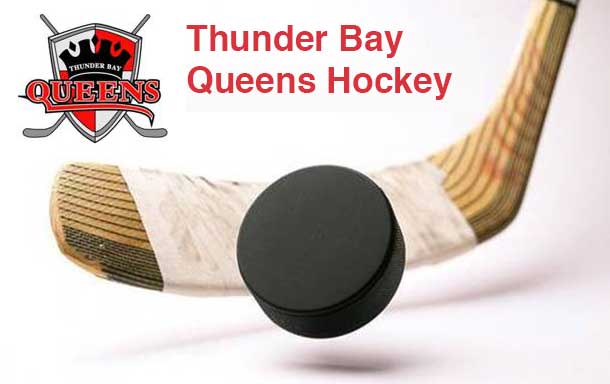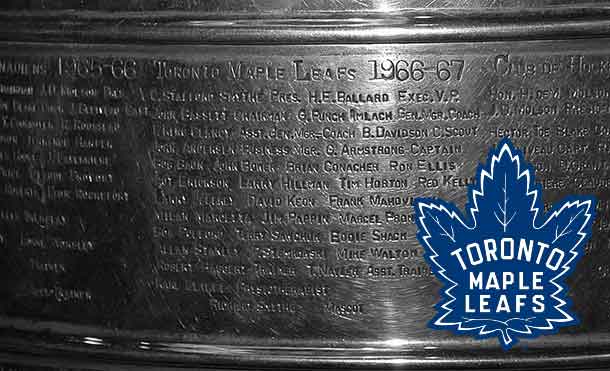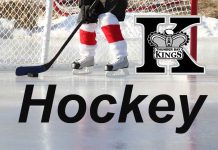
Young Hockey Players in Toronto at Little NHL Tournament
TORONTO – SPORTS – Judy Desmoulin is the Health Director in Long Lake #58. She shifts in her seat as she explains how the Long Lake #58 First Nation community have developed their children, parents, and people in a holistic way, through the team sport of hockey. At 7:00 am, driving on the 401 en route to an early morning game for the 44th Annual Little NHL Tournament in Mississauga, it does not matter as she is just as eloquent and passionate as she would be when discussing her community at any other time of the day.
“Our community has survived the abuses of residential school syndrome, and this has produced intergenerational effects in both parents and children. So this is why we support the game of hockey the way that we do. It is one of the ways for our people on the path to healing and wellness.”
Judy explains how the community held a “Rites of Passage” ceremony at their local recreation centre, for the Peewee (age 11-12) and Midget (age 15-17) players who had been preparing since last fall and all through the winter, to attend the Little NHL Tournament. Elders performed smudging and prayer while the children were provided with community support.
“A lot of people may not have ever had the chance to be able to do something like this. In the past, some parents may not have the income, or the wherewithal to be able to assist and support their children to do something like this. Thanks to our sponsors, managers, and supporters in the community this has changed. There is now hope and change in the community. It is more inclusive now.”
Indeed there is change, and this can also be recognized in the skill level of the players. The Long Lake #58 First Nation books ice time at the Longlac Sportsplex several times per week, so that the community children can attend regular practices. Along with attending those Longlac Minor Hockey Association practices in addition to the Little NHL practice times, some children can thus attain up to 20-30 hours per week of ice time. In this way, they can develop quicker than their cohorts in a place like, for instance, Thunder Bay where most local teams practice only 1 or 2 hours usually. Development is exponential in comparison.
“A lot of our players are first-year players. Some have never even played organized hockey in their lives. This is a way to get everyone a chance. The children are working together, with one another, to grow and learn. They are helping one other. They are respecting one another. We can see that the lateral violence which may have been present before, is slowly being dissipated with this new generation of children.”
Judy is correct. Although there have long been documented abuses which have resulted in the negatives with respect to residential school abuse and lateral violence, one can see that the way that Long Lake #58 First Nation is approaching the sport of hockey is a way that can counteract these negative effects. In fact, the community can proudly say that they are in fact turning this around.
“We can also see that parents are working with one another in providing for this healthy environment for their children. People work together and support one another in our community when involved in the sport of hockey. We need to work together to be successful: both children and parents. In this way, hockey is more than just a sport in our community. It can function as a healing and wellness initiative.”
The venture is a true coming together of talented and dedicated adults: with Judy, Ashley Kowtiash and Andrea O’Nabigon are the other managers for the Midget and Peewee teams respectively. They have worked tirelessly in the past several months in ensuring that all paperwork and documentation has been completed and supplied to the Little NHL tournament organizers in Sudbury. During the tournament, one cannot miss seeing their dedication to the players and parents, as they provide everything that anyone needs: hotel rooms, food, recreation, and support. The task is insurmountable, but they do it each and every day as volunteers without question.
Roseanne Legarde and Anthony Legarde, Leanne Bouchard and Jesse Nadon, are other parent groups who devote much of their time to the players and parents by administering the hockey program or even coaching the teams.
Funding was supplied by The Dreamcatcher Fund, which processed 30 player applications for equipment and also paid for player registration. The support from the fundraising efforts of the community members as seen in activities such as prize bingos and penny auctions. The children proudly wear their team jackets and look quite sharp in the red Hitmen jerseys.
Long Lake #58 First Nation band administration supplied the rest of the funding.
Several Long Lake #58 First Nation community members (Anthony and Jesse, as well as Blair Abraham, Sidney Abraham, Aaron Abraham, and Earl Wesley Jr) completed NCCP (National Coaching Certification Program) training in January, to be able to be licensed to coach the teams. Peter Rasevych, a Ginoogaming First Nation member whose family background is in Long Lake #58 First Nation, also is fully certified and assists in coaching for the Peewee team.
Furthermore, all coaches, managers and trainers had to complete “Respect in Sport” certification which is also known as “Speak Out” certification. This training focuses on abuse in sport. The aforementioned adults are all committed to ending the cycle of abuse through dedication to the lives of the children and the human and social development that accompanies the sport of hockey.
“You also see our Elders, the grandparents of the children, at many hockey games cheering on the children. This is important. It is good for the children to see that their kokums and mishooms are involved in this initiative. We even have one player who is battling cancer, who plays and is supported by all. Everyone gets a chance and is supported by the others. We are not competing with one another, but rather we are working together.”
This is the true Anishnawbe way that Judy speaks of: sharing, caring, love, community, and family. Assisting one another and giving a helping hand to someone who may be down, and then yourself being assisted in turn, when it is your time to be “down.” This is the way that Anishnawbe people survived since time immemorial, prior to contact with Europeans, and these values capture the spirit and essence of what a team sport like hockey really is: not an individualistic venture, but rather one in which all will rise with one another. There is a deeper, more profound and philosophical meaning for the sport of hockey that is rooted in traditional Anishnawbe values, in Long Lake #58 First Nation.
Story and Pictures by Peter Rasevych
LONG LAKE #58 FIRST NATION HITMEN (PEEWEE) ROSTER
Aarisen Abraham
Demi Abraham
Kara-Rai Abraham
Sidney Abraham
Isaiah Atlookan
Tarquin Echum
Keaton Finlayson
Greg Finlayson-Shebagabow
Evan Fox McKay
Kaiden McKay
Jarome Meshake
Nolan Nadon
Adam Patterson
Anawtyn Rasevych
Jarret Taylor
Cameron Tyance
PEEWEE COACHING STAFF:
Sidney Abraham Jr
Jesse Nadon
Peter Rasevych
Judy Desmoulin
Andrea O’Nabigon
LONG LAKE #58 FIRST NATION HITMEN (MIDGET) ROSTER
Riley Waboose
Stephen Towegishig
Marcus Desmoulin
Ricky Desmoulin
Dawson Legarde
Kurtis Legarde
Nimkii Debassige
Yari Abraham
Troy Shebagabow
Darius Shebagabow
Thomas Esquat
Michael Esquat
Jarod Waboose
Calvin Legarde
Daylon Patabon
Serge Finlayson
Chad Desmoulin
Danta Desmoulin
Kioki Damien
MIDGET COACHING STAFF:
Anthony Legarde
Aaron Abraham
Blair Abraham
Ashley Kowtiash






